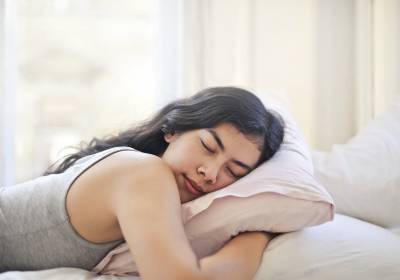Sophia Saeed, third year UCL Geography student, shares her advice on how to get a good night's sleep.
One thing I do excel in is sleeping. So, here are my tips for getting a good night’s sleep…
1. Exercise during the day
Exercise is not only beneficial for your overall health but also can improve your sleep. I’ve found that on the days that I exercise, my body is less restless in prep for a good night’s sleep. Caution though, don’t exercise too late at night because few hours before you sleep, your body starts releasing melatonin, a hormone that regulates sleep. If you exercise close to bedtime, there’s a delay in the release of melatonin, which can actually make your sleep worse! I exercise in the late afternoon to prevent that from happening.
2. Do things which will make you relaxed before bed
This one might seem pretty self-explanatory. But, despite what people say about screens before bed, watching a TV show or reading a book can wind your mind down and help you get a more restful sleep. Other things which you could do to relax is yoga or have a warm bath! It is recommended to stop using your phone at least 30 minutes before you try and go to sleep as the blue light which is emitted from smartphones can play a factor in poor sleep. If you do want to watch something before you head to bed, however, watching something from a distance on your laptop or television with the brightness turned down can be relaxing and could lead to a night of good sleep.
3. Sleep music
Something I have found helpful is listening to calming music or white noise effects like beach waves or nature sounds. Silence can sometimes be daunting so listening to these sounds or even trying to meditate, using resources like on the Calm app, can help you doze off and have a high-quality sleep.
4. Eat right
For the highest sleep quality, it's important to be mindful of what you eat, especially towards the end of the day. Eating a lighter dinner, restricting caffeine and high sugar foods 6 hours before bed has helped reduce my anxiety levels before sleeping at night. If I can’t sleep, I opt for a caffeine-free hot drink like tea or hot chocolate. Food-wise, nuts and porridge have been known to promote good sleep.
5. Light and temperature
Controlling these 2 factors have been essential for me to get some good shuteye! To control light, I wear a soft eye mask that isn’t too tight or harsh on my eyes to block out any excess light. Temperature-wise, I use a fan in the summer, and although a higher temperature seems essential in winter, a warm room can actually hinder sleep quality! So, I try to keep my room fairly cool and not too humid.
 Close
Close


